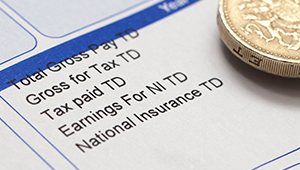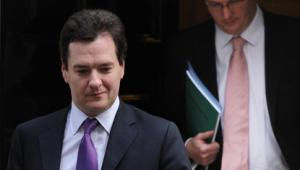By Vivienne Russell | 21 March 2012
Chancellor George Osborne confirmed that the government will explore a shift to regional pay in the public sector.
The proposals, which leaked out over the weekend, have already provoked a hostile response from trade unions and the devolved nations who claim the move will do nothing to help growth in struggling parts of the UK.
But in his Budget statement today, Osborne argued that public servants based in London already benefit from enhancements to their salaries in the form of London Weighting.
He also noted that the Labour Party had floated the idea of regional benefit rates and, when in power, introduced regional pay into the Courts Service.
‘We should see what we can do to make our public services more responsive, and help our private sector to grow and create jobs in all parts of the country,’ Osborne said.
‘We’ve asked the independent pay review bodies to look at the issue.’
The Treasury has also published the evidence it is submitting to the review bodies.
Osborne also used the Budget to address the conundrum of removing Child Benefit from households including a higher-rate taxpayer.
He announced that he wanted to avoid a ‘cliff-edge’ effect where people would lose the benefit if they earned just a pound above the higher-rate threshold. Child Benefit will now only be withdrawn when someone in a household earns more than £50,000.
‘And the withdrawal will be gradual, 1% of child benefit for every extra £100 earned over £50,000 so there is no cliff-edge and only those with an income of more than £60,000 lose all their child benefit,’ the chancellor said.
This means an extra 750,000 families would keep some or all of their Child Benefit, and 90% of all families would remain eligible for the support, he said.
On income tax, Osborne announced that he was raising the personal allowance by £1,100 from April next year. This was the ‘largest ever increase’, he said.
‘Millions of working people will be £220 better off every year… 24 million people earning less than £100,000 a year will gain from this measure. We are in touching distance of the goal of £10,000 personal allowance that we all share.’
As expected, the Budget cut the top 50p rate of tax to 45p, a change that will also come into effect next April.
Osborne justified his decision by saying the 50p rate was the highest in the Group of 20 leading nations and that it had raised just over a third of the £3bn it was supposed to have raised.
Osborne also pointed to a Revenue & Customs study, which found the tax rate had led to ‘massive distortions’, with £16bn of income deliberately shifted into the previous tax year.
‘[The 50p rate] raises at most a fraction of what we were told – and may raise nothing at all… No chancellor can justify a tax rate that damages our economy and raises next to nothing,’ he told MPs.





















